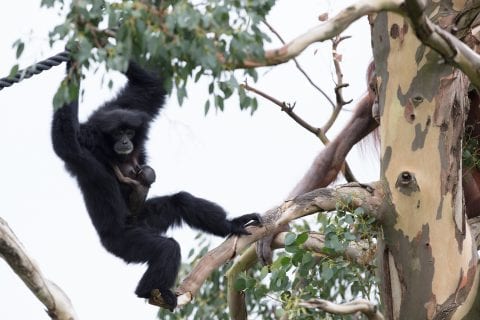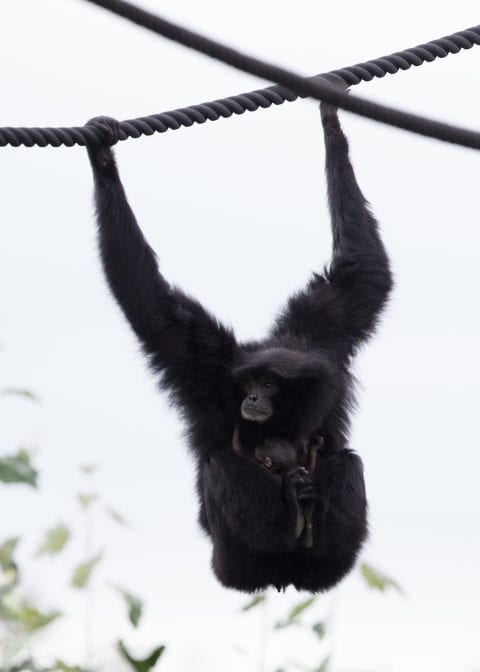Posted In Animals, Conservation | 6th August 2020
Endangered Siamang Gibbon Born at Dublin Zoo
New arrival the first child of Cahaya and Luca
Dublin Zoo is celebrating the arrival of a baby siamang gibbon. The baby was born overnight on Sunday the 2nd August to parents Cahaya (10) and Luca (19). The baby is healthy and has been observed suckling.
Before this arrival over the bank holiday weekend, Cahaya and Luca were the only siamang gibbons at Dublin Zoo, with Cahaya arriving in 2014 and Luca in 2018. They forged a strong connection from the very first day they met, and this healthy baby is exceptionally welcome news for everyone involved with the zoo.

Ciaran McMahon, team leader at Dublin Zoo said: “We are absolutely delighted to welcome this siamang gibbon baby to Dublin Zoo. The species is listed as Endangered so every birth is extremely important. Cahaya and Luca are the most loving couple, very attentive to each other’s needs, and we have no doubt that they will make excellent parents.”
“The baby is doing well and visitors to the zoo passing the Orangutan Rainforest may get a glimpse of the new arrival in the coming days,” he concluded.

The siamang gibbon is a primate and the largest of the gibbon species. They are black-furred apes with very long arms, much longer than their legs. They are also the only gibbons with both opposable thumbs and toes. They can weigh between 10–12 kg and have large throat pouches which allow them to vocalise and sing. They can often be heard singing in Dublin Zoo from 10-11am each day.
Siamang gibbons are listed as Endangered on the IUCN Red List. Their natural habitat is the canopy of semi-deciduous and evergreen forests in the Barisan Mountains of west-central Sumatra, Indonesia, the mountains of the Malay Peninsula, Malaysia and in a small southern peninsular area of Thailand.
Threats to their survival in the wild include forest conversion through agriculture leading to habitat loss, and opportunistic poaching.
Dublin Zoo participates in the European breeding programme for this species and contributes to funding the Supayang Gibbon Conservation Centre in Sumatra. Check out more about the conservation which Dublin Zoo supports for this species here.
Book your tickets to the Outdoor Safari Trail to visit the infant here.
